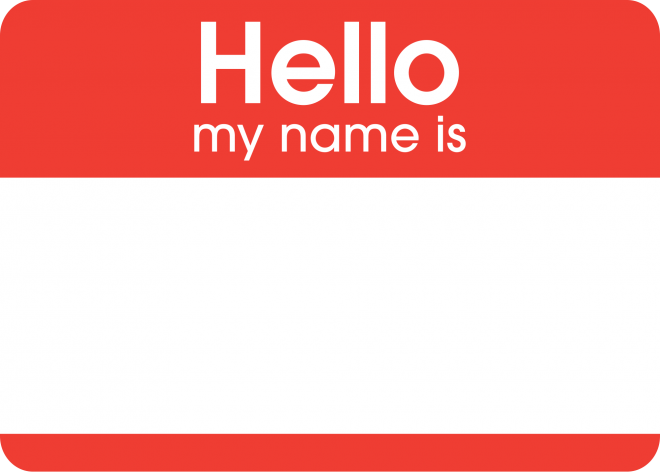
Hello, my name is Dante Léon Dominic Savio Bellardita-Fernández. That is my full and complete name, yet for the majority of my life I have gone by simply Dante. I’ve been able to go by just Dante because it is not a common name. The name itself is a contraction of the pre-Christian Latin name Durante, which is the etymological root of: endure, endurance, duration, and durable. Within the Italian and Italian-American community it is an older name that is not very popular (compared to Anthony or Joseph), yet within the African-American community it has seen a resurgence. And, because of this novel adoption, I share my name with famous people like Dante Alighieri as well as Daunte Culpepper.
In America anglicized, Germanic, or Biblical names are the most common. If an individual’s name is uncommon or “foreign” they can experience an array of ignorance and discrimination. An example of this which is hashed out in various medias is the ostensible “real” names of Germanic descendent Americans, and the “made up” names of African-Americans. https://www.youtube.com/watch?v=Dd7FixvoKBw
Dante (don-tay) becomes dan-tee, dant, dan, and or danny. And though I do not hold it against the overworked baristas at Starbucks, it is always a luck of the draw when it comes to what name will actually end up on my coffee order. I am sure that other people have an even harder time and face more ignorant interactions because of their names.

Your name is your metaphysical existence. Your name symbolizes, represents, proceeds, and is associated with you. So, it is not unreasonable that we should treat people and their names with respect. We need to clearly communicate what we wish to be called, reinforce what others wish to be called, and confront situations where names are used as a means of discrimination.
This extends to using appropriate pronouns to refer to people. When we advocate for an other’s name and personal pronouns to others, we reinforce the validity of its use and minimize the erasure and discrimination created by misuse.
In adolescence the experience of one’s name leaves a lasting impression. http://neatoday.org/2016/09/01/pronouncing-students-names/ Then, when one enters the workforce there is whole other experience. http://www.businessinsider.com/proper-way-to-correct-people-who-mispronounce-your-name-2013-11 We can take control of these experiences and shape the ways in which we communicate our names’, others’ names, and the sentiment towards “American” and “un-American” names.
A great way to get involved is the movement https://www.mynamemyidentity.org/ where you can pledge to say peoples’ names correctly. And though it may appear superficial, the pledge is a sign of solidarity. It also can serve as a non-confrontational way of creating awareness about respecting people and their names in a workplace/professional setting.
As an in-class activity, I am going to have everyone write their names and their preferred gender pronouns on the ubiquitous ‘HELLO MY NAME IS” tags. Even though we have had class together for a whole semester I am sure that we do not know everyone’s name, so this would be a nice way to end the class re-learning everyone’s name. Time permitting I would like to open the discussion to brainstorms ways, besides pledging to the aforementioned campaign, in which we can construct more respectful social interactions concerning peoples’ names in the future.
